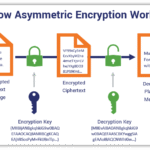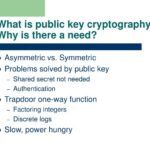In the vast landscape of cryptography, the concept of trust entwined with keys is a dichotomy that beckons inquiry. The durability of trust afforded to cryptographic keys is a foundational aspect that underpins the security and integrity of information systems. This phenomenon raises pertinent questions regarding the lifespan of trust associated with keys—a seemingly innocuous subject profoundly interwoven with the broader discipline of information security. Within this exploration, one must grapple with the essential tenets of key expiration, its rationale, implications, and the psychological motivations that render such a topic endlessly fascinating.
Key expiration is a critical mechanism within numerous cryptographic frameworks. It entails the predetermined cessation of a key’s validity after a specified duration or under particular conditions. This ensures that old keys, which may have been compromised or rendered obsolete due to advances in technology, do not remain valid indefinitely. The practice serves as a safeguard against potential breaches in security that may arise from stale keys lingering in a system.
Understanding the timeframe for trust becomes convoluted upon consideration of several factors. The first layer pertains to the context in which the keys operate. For instance, a short-lived key may be entirely appropriate for ephemeral data transactions, such as those undertaken in secure messaging applications. In contrast, long-term keys, which encrypt critical infrastructure data, may necessitate a different duration of trust. Thus, the context ultimately dictates the timing and relevance of expiration.
Another significant consideration is the vulnerability landscape. Cryptographic algorithms face continual scrutiny by both academic researchers and malicious entities who seek to undermine their efficacy. The discovery of new attack vectors—be it through advancements in computational power or the unearthing of theoretical weaknesses—can necessitate a reevaluation of key expiry timelines. This volatility underscores the importance of vigilance in reassessing the period during which trust in a key is warranted.
Moreover, the user’s perception plays a role in how trust is established and maintained. Trust is seldom derived solely from empirical evidence; it is deeply influenced by psychological constructs. Individuals may exhibit an innate propensity to trust a key until they perceive a compelling reason to question its integrity. This observation begs deeper reflection on the nature of trust—particularly, the notion that it can often be less about objective safety measures and more about subjective belief systems. The tension between rationality and intuition is laid bare in discussions surrounding key expiration.
Key revocation policies further complicate the conversation surrounding expiration. The ability to render a key invalid proactively, before its expiration timeframe elapses, is an essential element of cryptographic flexibility. In environments where rapid changes occur, revocation addresses potential threats effectively. Yet, it is often neglected in favor of automatic expiration, raising critical questions about whether users fail to understand the dual mechanisms at play in key management.
Adopting a policy of key expiration yields diverse implications for data governance. As organizations grapple with compliance requirements—such as those dictated by regulations like GDPR—the mechanism becomes not just a recommendation but a necessity. Stakeholders must confront the dichotomy between operational efficiency and regulatory adherence, weighing the impact of key expiration on both user experience and security frameworks. The dialectic between strict compliance and the complexities of implementation fosters a fascinating dynamic whereby technical and human dimensions coalesce.
Emphasizing the importance of education in fostering best practices further illuminates the multifaceted nuances of key expiration. Knowledge dissemination is critical as it enables organizations and individuals to understand the significance of regularly evaluating their cryptographic assets. Education should not reduce itself to mere dissemination of information, but rather cultivate a culture of awareness regarding potential vulnerabilities and the mechanisms available to mitigate them.
This culture of awareness is paramount when considering the ramifications of key mismanagement. For instance, the lack of structured expiration can lead to prolonged reliance on deprecated keys that both compromise data integrity and expose systems to extrinsic threats. Through regular expiration, organizations not only protect their information assets but also establish a framework for ongoing trust in their cryptographic practices.
As we delve deeper, the relationship between key expiration and digital obsolescence presents a captivating conundrum. In a world where technology evolves exponentially, key longevity must be evaluated in parallel with the lifespan of the systems it purports to secure. This interdependence delineates a roadway fraught with potential hazards, making it imperative for organizations to remain agile in their strategies for digital resilience.
The fascination with the expiration of keys stems from a confluence of factors—security, human psychology, regulatory compliance, and technological advancement. Each aspect contributes significantly to the overarching narrative surrounding cryptographic trust. In conclusion, while the duration of trust afforded to keys is deeply contextual, its implications resonate broadly within the domains of cybersecurity and information governance. The question of how long one should trust their keys nudges at the very heart of cryptographic philosophy and operational pragmatism, positioning itself as a pivotal inquiry in the ongoing quest for a secure and trustworthy digital future.







Leave a Comment